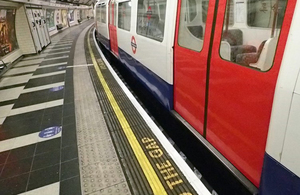Virtual Events remain for now; greater flexibility of events to be offered in future
The Coronavirus (COVID-19) pandemic has had a significant impact on the capacity of our operations but we have made headway on progressing casework where possible. Since the start of lockdown, we have issued 3,500 appeal decisions; 1120 of these since we restarted site visits in May (under normal circumstances we would have expected to have issued around 5,600 in this time period). We have also made significant progress on holding virtual hearings and inquiries.
Greater flexibility via the new Business and Planning Bill
The Government announced yesterday (25 June) a set of measures as part of the Business and Planning Bill 2019-21 bringing forward temporary changes to the planning system to support economic recovery. And there is further clarification around the supporting temporary measures that the Government proposes to ensure the planning system continues to operate effectively in yesterday’s Written Statement made by Housing Minister Chris Pincher. The Bill also includes new measures that will grant the Planning Inspectorate the ability to use more than one procedure – written representations, hearings and inquiries – at the same time when dealing with a planning appeal, enabling appeals to happen more quickly. It will also allow scope for Inspectors to be more flexible, given the difficulty in operating physical inquiries and hearings at present. These changes would bring us in line with the legislative provisions in Wales where this flexibility is already in place.
The ability to use a flexible procedure approach will allow our Inspectors to decide on the scale of cross-examination or investigation via hearing required. For example where parties have made good progress in narrowing down the issues, less cross-examination may be needed. Conversely where an Inspector is not satisfied that they can obtain the necessary information via written procedure, they can introduce a hearing and/or cross-examination.
We have been working hard to continue processing appeals during these exceptional times. We welcome any measures that build on the Rosewell Recommendations and provide Inspectors with the flexibility to consider all the evidence needed to make a fair and robust decision.
It is anticipated that these new measures will come into effect in late July before Parliamentary summer recess. However, in the short term, we will continue to plan and run events in a virtual capacity to protect our staff and customers and maintain a stability of service while the coronavirus (CV-19) pandemic continues.
Virtual Events
Until it becomes safe and reliable to hold physical public gatherings involving several households indoors we cannot hold Hearing or Inquiry-events like we used to. We have been contacting main parties to reschedule previously postponed events to as an early a new date as possible.
We have increased the number of virtual events following a series of successful trial events.
To date we have successfully progressed 11 cases via a series of virtual events including three National Infrastructure projects, three inquiries and one local plan hearing. Each of the six larger cases required a series of virtual events; the longest being up to three events per day over a period of seven days.
At the same time a lot of preparations have gone into further increasing the number of virtual events to take place in July. So far arrangements have been finalised for an additional 18 cases to be progressed over the next five weeks, including the South Oxfordshire Local Plan examination which involves several virtual events daily over a four-week period. Arrangements for additional cases in July are continuing to be firmed up. We have received positive feedback from participants and useful suggestions on how we can continually improve the experience of all parties.
The video below explains our approach to site visits and virtual events.
Our approach to site visits and virtual events during the Covid-19 pandemic
Whilst we are progressing virtual events, we are actively looking at options to resume some face-to-face hearings and inquiries and they will continue to be part of our future once the current situation has eased. Experiences collected in holding virtual events will also be useful to inform what role virtual or a blend of face to face and virtual events may be able to play in the longer term in widening options and access.
Progressing casework and support to our customers
This week the Government issued the latest coronavirus (COVID-19) guidance including a relaxation of the social distancing and opening of additional business types. However, there are no changes to the current advice we have issued to our customers due to the continued restrictions on numbers of unrelated persons who can be together indoors or outdoors.
We are continuing to do site visits where it is safe to do so and where social distancing measures can be adhered to.
Customers wishing to submit an appeal should use our online service in the first instance: https://acp.planninginspectorate.gov.uk. All appeal and other documents should be submitted on-line or by email as our offices are closed. This ensures that appeals are processed quickly. We have, however made provision for a limited number of staff to collect post sent to our offices. Documents sent to us by post have to be scanned and then sent to the relevant casework team causing significant delay. We hope our customers understand the need to keep our staff safe and support us by using our online services.
For the latest information on casework arrangements in Wales please visit GOV.WALES.
